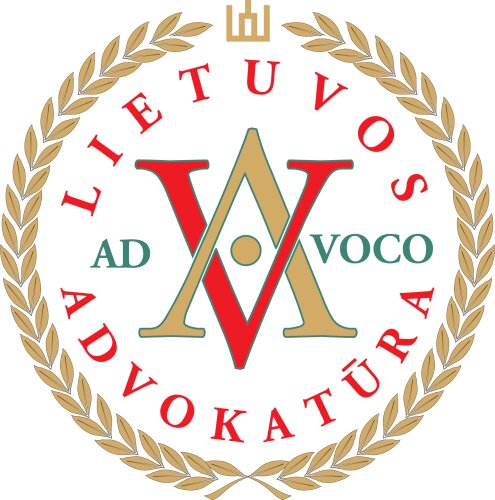Best ADR Mediation & Arbitration Lawyers in Klaipėda
Share your needs with us, get contacted by law firms.
Free. Takes 2 min.
List of the best lawyers in Klaipėda, Republic of Lithuania
About ADR Mediation & Arbitration Law in Klaipėda, Republic of Lithuania
Alternative Dispute Resolution (ADR), including mediation and arbitration, refers to methods of resolving disputes without going to court in Klaipėda, Republic of Lithuania. ADR is promoted by Lithuanian law as a faster, more efficient, and sometimes less expensive way to resolve civil, commercial, and even employment disputes. The legal framework in Lithuania supports both mediation and arbitration, making these options widely accessible in Klaipėda for individuals and businesses seeking to settle disagreements amicably.
Why You May Need a Lawyer
There are various situations where obtaining legal advice or representation in mediation or arbitration is beneficial. These include:
- Complex business disputes or contract disagreements that require specialized knowledge of Lithuanian law
- Civil disputes involving property, family matters, or inheritance where the parties cannot reach a voluntary agreement
- Employment disagreements, such as dismissal or discrimination claims, that benefit from a neutral third party
- International transactions involving Lithuanian parties where laws of different jurisdictions might apply
- Assistance with drafting or reviewing arbitration agreements and ensuring their enforceability
- Guidance through formal proceedings to protect your legal rights and interests
A lawyer can explain the process, advise you on the best course of action, and represent you during negotiations or hearings.
Local Laws Overview
Lithuania’s ADR landscape is mainly governed by the Law on Commercial Arbitration and the Law on Mediation. The laws establish the framework for conducting both court-annexed and private mediation, as well as domestic and international arbitration proceedings. Some key local aspects include:
- Mediation can be initiated before or during court proceedings, and agreements reached are generally enforceable
- Arbitration agreements must be in writing and specify the disputes to be arbitrated
- Arbitral awards are recognized and enforceable in Lithuania following international conventions
- Court intervention is limited but possible for issues like appointing arbitrators, enforcing awards, or challenging arbitral decisions
- Klaipėda has access to both local and international arbitration institutions, and mediation services are often provided by certified professionals
Frequently Asked Questions
What is the difference between mediation and arbitration?
Mediation involves a neutral third party who helps parties find a mutually agreeable solution, but the outcome is non-binding unless formalized in an agreement. Arbitration involves an impartial arbitrator or panel who hears evidence and makes a binding decision.
Is ADR mandatory in Klaipėda, Republic of Lithuania?
ADR is voluntary in most cases but courts may encourage parties to attempt mediation before proceeding with litigation.
Are mediation agreements legally binding?
Yes, if both parties sign a settlement agreement following mediation, it is legally enforceable in Lithuania.
Can foreign parties use mediation or arbitration in Klaipėda?
Yes, ADR services are available to both local and international parties. Arbitration agreements can specify Klaipėda as the seat even if parties are foreign.
Who can serve as a mediator or arbitrator?
Mediators must be certified or meet professional qualification requirements. Arbitrators can be chosen freely by the parties, often based on expertise.
What types of disputes can be resolved through ADR?
Most civil and commercial disputes, including contractual, property, employment, and cross-border matters, are suitable for ADR. Criminal cases generally cannot be handled through ADR.
How long does mediation or arbitration take?
Mediation can be completed in days or weeks. Arbitration timeframes depend on complexity but are typically shorter than court proceedings.
What are the costs of mediation or arbitration?
Costs vary depending on the mediator or arbitration institution, complexity, and duration. Generally, ADR is less costly than full-scale litigation.
Can an arbitration award be appealed?
Arbitration awards are final and binding. They can only be challenged in specific circumstances, such as procedural irregularities.
Do I need a lawyer for ADR?
While not strictly required, having a lawyer ensures your rights are protected and can be particularly important in complex disputes.
Additional Resources
For those seeking more information or assistance, several organizations and resources are available in Klaipėda and across Lithuania:
- Lithuanian Chamber of Commerce - offers information on commercial arbitration
- Klaipėda Commercial Arbitration Court - specializes in resolving business disputes
- Lithuanian Association of Mediators - provides certified mediators and mediation training
- Klaipėda City Court - can provide referrals for court-annexed mediation
- Ministry of Justice of Lithuania - supervision and guidance over ADR regulations
Next Steps
If you believe mediation or arbitration may help resolve your dispute, consider these steps:
- Determine if your matter qualifies for ADR under Lithuanian law
- Consult a lawyer with experience in ADR to evaluate your case and advise on strategy
- Choose a mediator or arbitration institution with the right expertise and credentials
- Prepare necessary documentation and evidence for your case
- If a settlement is reached, ensure any agreement is put in writing and reviewed by a lawyer
- If an arbitration award is issued, consult your lawyer about enforcement or compliance
When seeking legal assistance in Klaipėda for ADR matters, research local law firms or legal aid services, schedule a consultation, and bring all relevant information to your first meeting. Legal professionals can guide you through your options and help achieve an effective resolution.
Lawzana helps you find the best lawyers and law firms in Klaipėda through a curated and pre-screened list of qualified legal professionals. Our platform offers rankings and detailed profiles of attorneys and law firms, allowing you to compare based on practice areas, including ADR Mediation & Arbitration , experience, and client feedback.
Each profile includes a description of the firm's areas of practice, client reviews, team members and partners, year of establishment, spoken languages, office locations, contact information, social media presence, and any published articles or resources. Most firms on our platform speak English and are experienced in both local and international legal matters.
Get a quote from top-rated law firms in Klaipėda, Republic of Lithuania — quickly, securely, and without unnecessary hassle.
Disclaimer:
The information provided on this page is for general informational purposes only and does not constitute legal advice. While we strive to ensure the accuracy and relevance of the content, legal information may change over time, and interpretations of the law can vary. You should always consult with a qualified legal professional for advice specific to your situation.
We disclaim all liability for actions taken or not taken based on the content of this page. If you believe any information is incorrect or outdated, please contact us, and we will review and update it where appropriate.















